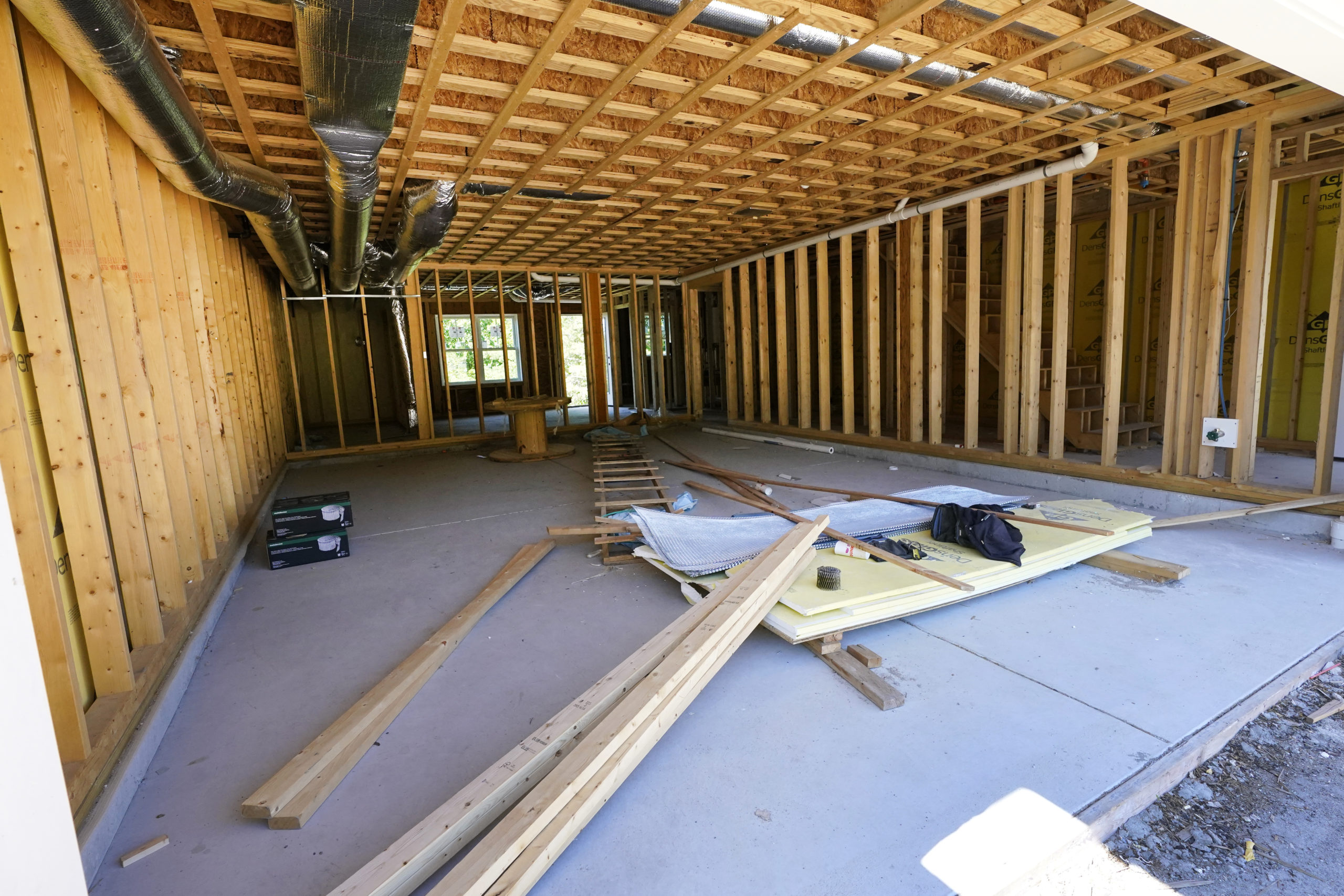
LOS ANGELES (AP) — Homebuilder stocks have lagged far behind the broader market during Wall Street’s swoon this year, weighed down by fears that rising mortgage rates could severely dampen sales.
Yet some Wall Street analysts say the selling may be overdone.
One prominent exchange traded fund, the SPDR S&P Homebuilders ETF, is down about 26% this year, and many of the biggest homebuilders are down even more. Meanwhile, the benchmark S&P 500 is down just 5%.
The swift rise in mortgage rates this year has spooked investors already worried about the highest inflation in decades.
The average rate on a 30-year mortgage rose this week to 4.67%, according to mortgage buyer Freddie Mac. A year ago, it stood at 3.18%.
Higher loan rates make it even harder for would-be buyers, especially after the sharp run-up in home prices over the past few years.
Recent data suggest the spike in rates has taken a bite out of new U.S. home sales, which slipped 2% in February from a month earlier to a seasonally adjusted annual rate of 772,000 homes. It was the second monthly decline. Sales were down 6.2% from a year ago.
Even so, some Wall Street analysts remain bullish on builder stocks.
In a research note this week, analysts at Bank of America Securities said homebuilder valuations are now trading at the low end of the historical range, making the stocks attractive. They also argue that the spike in mortgage rates is already accounted for by investors.
While higher rates make homes less affordable, rising rents and a tight supply of homes for sale should continue to stoke demand for homeownership.
“Simply put, there is a shortage of shelter and the cost to own is still relatively attractive versus renting in the fastest growing U.S. markets,” the analysts wrote.
In a separate note last month, Wedbush analyst Jay McCanless flagged the slide in homebuilder stocks, saying it appears “overdone.”
He noted that during the last rate spike in 2018, housing demand slowed, but recovered by early 2019.
For now, homebuilders can offer buyers incentives to offset some of the cost of higher mortgage rates.
“To date, we haven’t seen widespread evidence of any of those actions occurring,” McCanless wrote.


